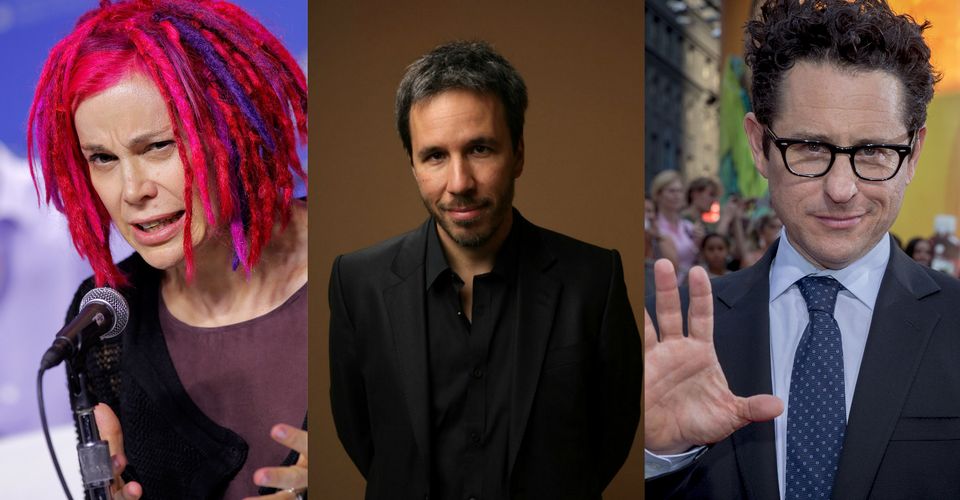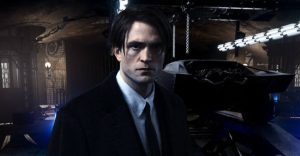The 10 Best Sci-Fi Directors Of The 21st Century (So Far)

The 21st century has been marked with the advent of new practical and visual effects and the reinterpretation of various philosophical themes in the sci-fi genre. While directors like Christopher Nolan have been able to craft big-budget modern epics, some like Alex Garland have attempted to merge several spiritual and philosophical worlds in their narratives about future technology.
From a man falling in love with an AI system to an aesthetically-pleasing sequel to Blade Runner, sci-fi is being taken to new heights as can be seen from the first two decades of this century. And due credit for this development and reinterpretation of the genre would obviously go to the innovative filmmakers helming this genre.
10 Alfonso Cuarón

Mexican filmmaker and screenwriter Alfonso Cuarón started his career in the 1990s but it’s in this century when he truly got to shine. His first venture into sci-fi was 2006’s Children of Men, a dystopian tale in a future where all of humanity has gone infertile. The film drew praise for its Orwellian themes and fast-paced cinematography by Emmanuel Lubezki.
Cuarón followed it up with his Oscar-winning venture Gravity. On paper, the Sandra Bullock-starring movie would seem like just an ordinary space survival film. But in terms of its masterful execution, Gravity turned out to be a fairly accurate space adventure film detailing the experience of an astronaut stranded in space.
9 Alex Garland

Alex Garland’s filmography is subtle, transient, and deserves to be re-watched to be interpreted fully. His directorial debut Ex-Machina used minimalistic production design and just three characters to interpret the nuances of AI. He followed this up with Annihilation, which adds an introspective tone to the genre of sci-fi horror as a group of women explore the extraterrestrial phenomenon in a forest.
Garland’s works are devoid of any high-scale explosions or action sequences and attempt to tap into the viewers’ grey matter. Another instance of his growing influence is the FX miniseries Devs that investigates a mystery set in an environment reminiscent of Silicon Valley.
8 The Wachowskis

Lana Wachowski and Lilly Wachowski might have directed their magnum opus The Matrix in 1999, but they have continued to be prolific in the genre. A sophisticated follow-up was Cloud Atlas, which is a philosophical take on a soul’s journey into different timelines, each timeline being altered with certain actions of the humans it goes through.
The siblings also created the Netflix cult sci-fi series Sense8 that starred a multinational ensemble as individuals connected with a telepathic link who must survive from a force that’s hunting them.
7 Christopher Nolan

A maestro who epitomizes the versatility of this century, Nolan has tried giving a spin to many genres, ranging from war to superhero. However, he drew comparisons to visionaries like Stanley Kubrick after writing and directing the monumental “dream heist” thriller Inception and the space exploration epic Interstellar.
The limited audiences who watched Tenet, his latest foray into sci-fi, might have been a little perplexed with all its meta elements like reversing time— but there’s still unanimous recognition of his genius and his quest to surpass himself with each project.
6 Rian Johnson

Rian Johnson had started out with the breakout indie hit Brick, but it’s his time-loop film Looper that put him on the map. The film yields a complicated narrative around assassins who shoot down their targets by going back in time. However, one such looper has to confront his own future version after he discovers a sinister plan to close the loop.
Johnson carried on his sci-fi filmography by directing Star Wars: The Last Jedi. While the film polarized fans, one can’t deny the change he tries to bring in the Star Wars Universe. Johnson’s film was of a darker tone and of grim landscapes, adorned with a more humanized version of the otherwise-glorious heroes of the franchise.
5 JJ Abrams

Talking about Star Wars, JJ Abrams is the one who brought the movie franchise back on track by directing both Episode VII and Episode IX of the iconic series. He also did the same for the Star Trek franchise, having directed two of the three films of its reboot era that revamped the space drama series. Abrams’s approach for the latter was heavy on drama and special effects gave the beloved series a bolder and edgier approach.
A lesser-known directorial gem from Abrams is Super 8, the story of a group of teenagers in 1979 who get a train accident on camera. Super 8 would definitely be of interest to fans of Stranger Things for its tonal similarities.
4 Neill Blomkamp

South African writer, director, and animator Neill Blomkamp crafts sci-fi stories with a hint of social satire. His directorial approach is a naturalist documentary-style of filmmaking that incorporates photo-realistic computer effects. His promising debut District 9 dealt with humans segregating aliens in a system similar to the racial Apartheid regime.
The themes of xenophobia, economic inequalities, and social segregation were carried on in his dystopian action-thriller Elysium, starring Matt Damon. While his most recent venture, 2015’s Chappie, bombed at the box office, Blomkamp’s District 9 still cements his reverence as a filmmaker who created socially-relevant sci-fi.
3 Duncan Jones

Duncan Jones has a similar case as Blomkamp in the sense that his latest sci-fi offerings didn’t fare well with audiences. However, his debut Moon was a memorable treat for fans of philosophical sci-fi. Starring Sam Rockwell as a lonely astronaut on the moon, the film has a thrilling third act while exploring themes of isolation and human interaction.
He experimented with the concept of time-loops as well with Source Code, a nail-biting thriller detailing the attempts of a man trying to save a train from an explosion by replaying the scenario over and over.
2 Jon Favreau

Jon Favreau is the mastermind behind several iconic projects in the fantasy and sci-fi genre. After all, the man transitioned from Zathura, the feel-good space sequel Jumanji, to Iron Man, the film that heralded the creation of the multi-billion dollar empire that is the Marvel Cinematic Universe.
He might have had a few misfires in the genre with Iron Man 2 and Cowboys and Aliens, but Favreau has reclaimed his influence on the pop culture zeitgeist by creating the Disney+ series The Mandalorian. In an age of polarizing Star Wars films, The Mandalorian paved the way for a different route that the franchise can take with its Western-influenced blend of action and sci-fi.
1 Denis Villeneuve

French-Canadian director Denis Villeneuve’s current challenge is to release Dune, his take on the classic sci-fi novel of the same name. But Villeneuve isn’t new to challenges considering how he crafted Blade Runner 2049, a slow-burning thriller of a sequel to the decades-old original.
With his first sci-fi film Arrival, the director showed his distinct vision in adapting sci-fi stories for the big screen in a manner that’s entertaining as well as inquisitive. In an age of senseless 3D popcorn entertainers, Arrival attempted to trigger its viewers’ grey matter rather than just their adrenaline.
About The Author


















